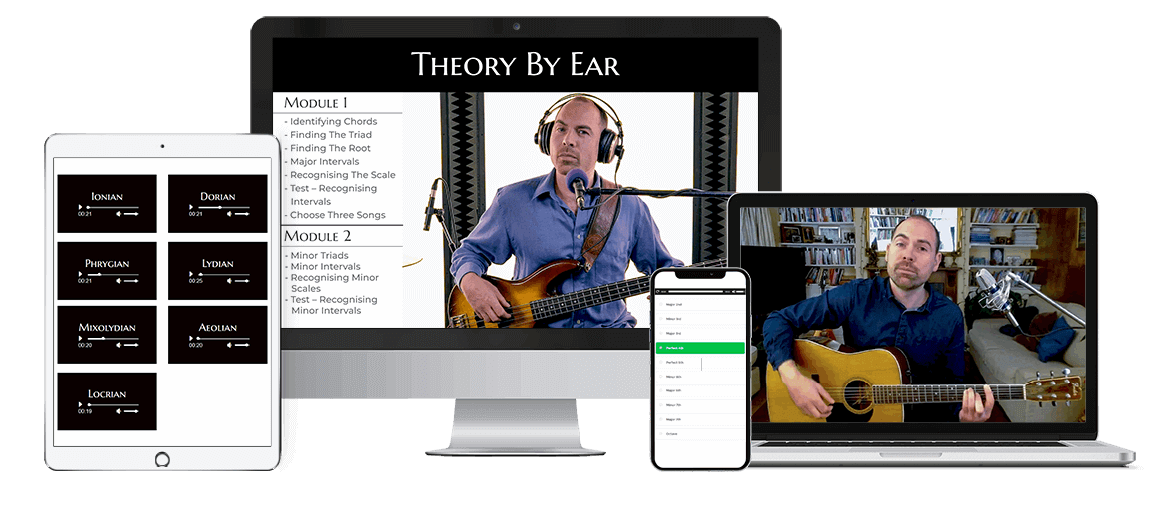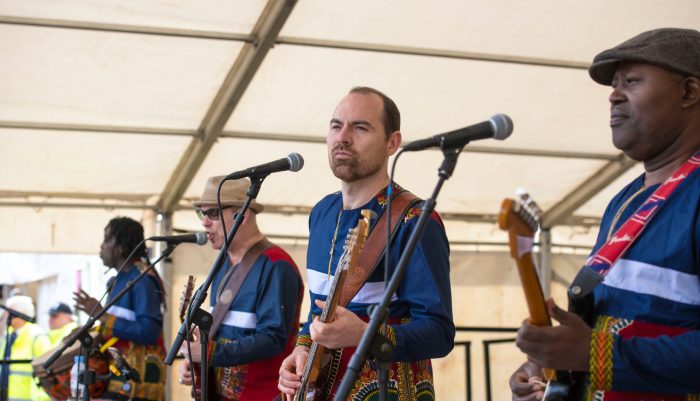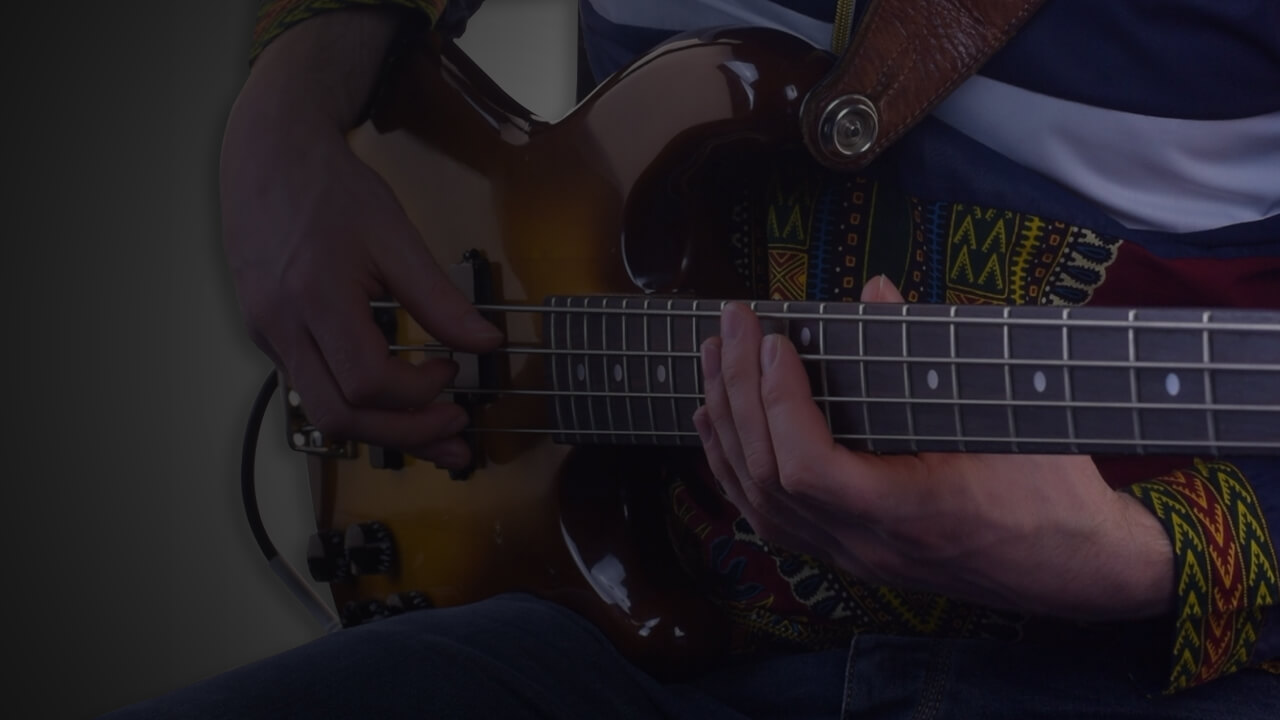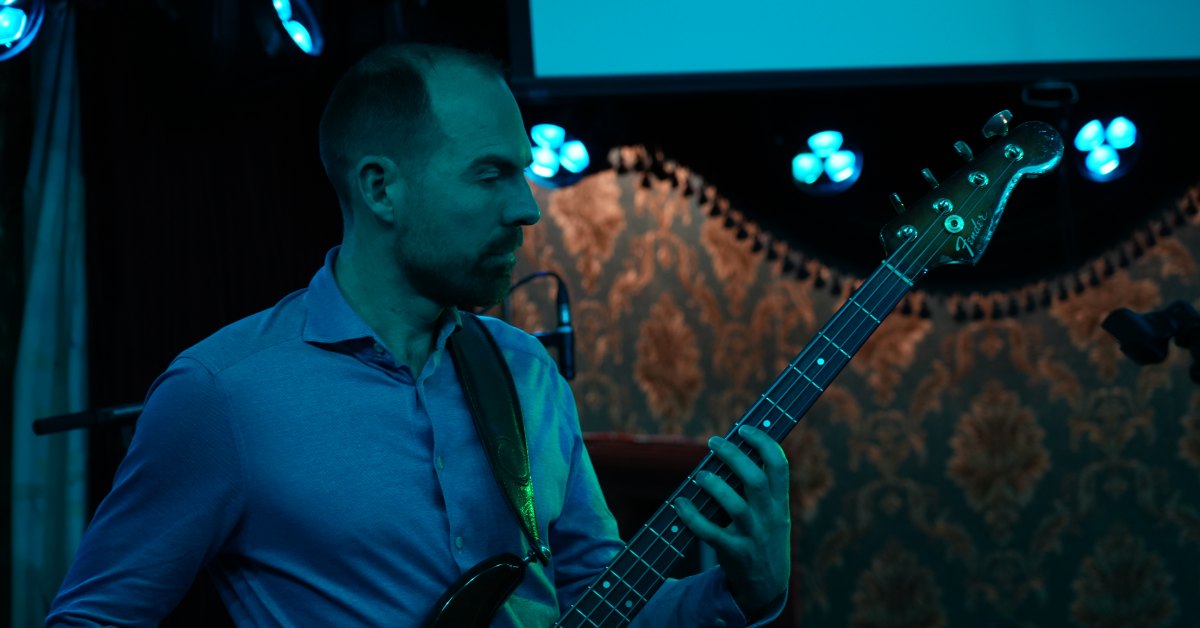Learn To Play By Ear
Music isn’t just about playing notes. It’s about hearing them before you play. The ability to listen to a song for the first time and instantly know how to fit in is what separates an average musician from a truly skilled one.
Edd Bateman has performed across the world, stepping on stage with artists he’s never met, playing songs he’s never heard, and locking in seamlessly. In Pakistan alone, he played 14 gigs with nine different artists, learning every piece on the spot. His secret? Training his ear to recognize harmony, melody, and rhythm in real time.
This course will teach you how to do the same. Combining video instruction with audio materials and interactive tests, it is designed to accelerate your ear development. Through a structured study of intervals, scales, and harmonic recognition, you will develop the ability to hear and replicate music instinctively. Whether you are a singer, guitarist, bassist or any instrumentalist, this course will sharpen your ears, strengthen your confidence, and give you the freedom to play without hesitation.

Key Learning Outcomes
By the end of this course, you will be able to:
Develop Core Listening Skills
- Identify and distinguish between major and minor scales by ear.
- Recognize harmonic and melodic intervals across different octaves.
- Train your ear to follow unfamiliar chord progressions in real time.
Build Harmonic Awareness
- Learn to recognize and differentiate between major, minor, diminished, and augmented chords.
- Understand how seventh chords function in harmony and develop an instinct for chord substitutions.
- Strengthen your ability to hear and internalize complex modal relationships.
Train for Real-World Musical Situations
- Develop the ability to hear a melody and immediately play it on your instrument.
- Follow and adapt to live performances without prior rehearsal.
- Improve rhythmic precision and learn to anticipate phrasing in different musical contexts.
Meet Your Tutor: Edd Bateman

At 14 years old, Edd Bateman was playing heavy metal basslines in his bedroom when his mother interrupted with an unexpected opportunity. A Zimbabwean Sungura and Chimurenga dance band, Chimanimani, had just arrived in England and needed a bass player immediately. With barely a week to prepare, Edd took the gig. Within a month, he found himself playing African nightclubs in London, university venues, and even Glastonbury Festival. He stayed with Chimanimani for six years, learning the intricacies of Zimbabwean bass firsthand.
In his early 20s, Edd’s focus shifted to West Africa, where he began intensive training with the Cissokho family of griots in Senegal. Performing marathon five-hour shows alongside Solo Cissokho, Seckou Keita, Sadio Cissokho, and the Jalikunda family, he absorbed the deep rhythmic traditions of Mbalax and Mandinka music. Guest appearances with Cheikh Lô, Orchestra Baobab, and Super Diamono solidified his reputation as a versatile and instinctive player.
With thousands of concerts to his name, Edd has led bands blending African and global styles, including London Astrobeat Orchestra and Edd Bateman’s West African Love Affair. In 2020, recognizing the lack of structured learning for African bass guitar, he founded World Music Method, an online platform dedicated to sharing the techniques and traditions of African and world music.
In 2024, Edd was called in at the last minute to tour with Sahara Desert Blues virtuoso Bombino, stepping onto the stage without rehearsal. In 2025, he expanded his musical journey to India and Pakistan, performing alongside Ustad Shafqat Ali Khan and leading members of the Sham Chaurasi Gharana. His deep foundation in African music allowed him to adapt instantly, navigating unfamiliar repertoire on the spot, a skill that defines a truly masterful bass player.





The tests work now! I spent about an hour every night listening to the major intervals and doing the exercises on my bass before taking the test on major intervals. It felt like taking the test was helping my ear so I took it close to 8 times. The first 7 times I was able to find 15 out of 20 of the questions but I didn’t want to move on until I was able to get 18 out of 20. Luckily on the eighth try that is exactly what I got so I am moving on to the minor intervals. The 3rd, 6th and 7th intervals sound very foreign to me so this might take some more time. I kind of binge studied to get the major intervals and felt a bit burnout after reaching my goal so I am going to try to put less pressure on myself for the minor intervals…
Great progress Matt and that’s great that you can use the test results to show clearly how much your ear is improving. I’d guess that because of how your ear has developed with the major intervals that you will actually take less time to master the minor intervals. I find the minor 6th can be a difficult interval to sing, easier to hear than to sing for me but you’re clearly improving so nothing will stop you.
I’ve known for my entire life that I’m tone deaf. I can’t even tune my guitar. Can your course fix me?
Aged 12 I started playing bass and picked it up very naturally and quickly however my ear was terrible. My Mum sings and even in my early 20s I remember her trying to get me to sing with her and I could not AT ALL sing two notes one after another in tune. My ear was always the weakest part of my musical skillset and compared to every other aspect of musicianship. I don’t know exactly when it shifted but now my ear is very very good, however it’s still the part of my musical skillset that I want to improve the most as everything else is better than my ear.
Think about dollars and cents. Tuning the guitar deals with small cents between the dollars. If you play an instrument like guitar when you play a fret you will play an exact note that is in tune and not the cents between it like a fretless instrument. The important thing regarding your ear is to be able to pick and hear the whole notes, not the cents in between. This course deals with notes, chord progressions, intervals. The important stuff for people who play a fretted instrument.
With my ear, I can confidently go on stage playing songs I’ve never heard before and pick them up……….however I always use a guitar tuner, I am not great at tuning, I never have been, and it’s definitely improved but it’s still a weak point but it’s no issue because I have a tuner.